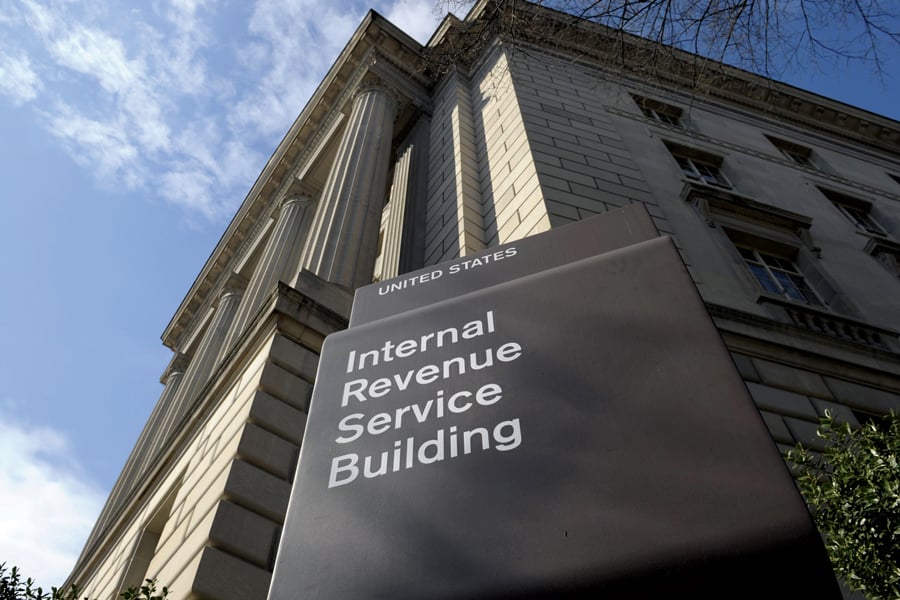The Internal Revenue Service provided some long-awaited answers for business owners hoping to dodge the limits on a juicy new tax break.
The IRS's
proposed regulations make it clear that the agency considers a planning technique known as "crack and pack" to be abusive. The move had been eyed by professional service providers, such as law and accounting firms, to get around income limits set for pass-through businesses, whose income is reported on their owners' personal returns.
Under that strategy, business owners split their businesses into different entities to lower their tax bills. For example, a law firm would put all the secretarial staff in one entity and the lawyers in another to get the full deduction for the income earned in the administrative entity.
The
pass-through break under President Donald J. Trump's tax law spurred tax professionals to
circulate proposals and riff on each other's ideas, as the industry looked to coalesce around strategies that would save their clients money.
The
pass-through provision is "very, very complicated, and in many places utterly confusing," said Joseph Darby III, partner at Sullivan & Worcester. "The law left everyone with a ton of questions, and the regulations provide about half a ton of answers."
Mr. Trump and Republican leaders have said middle-class Americans and small businesses would be the biggest beneficiaries under the $1.5 trillion tax cut. But the strategies under consideration to take advantage of the 20% pass-through deduction showed how top earners could ultimately reap the biggest gains.
All taxpayers who earn less than $157,500, or $315,000 for a married couple, can now deduct 20% of the income they receive via pass-through businesses from their overall taxable income. If taxpayers earn above those amounts and aren't service professionals, they must meet tests to take the full deduction — the size of their deduction depends on how much they pay in employee wages or how much they've invested in capital like real estate.
For "service professionals," the break fully phases out if they earn more than $207,500 if they're single, or $415,000 if they're married.
The proposed regulations provide some answers about what a service business is, but questions remain since the law is vague and has left hundreds of thousands of businesses wondering if they qualify.
Unfortunately for financial advisers and brokers, the proposed regulations aren't vague as pertains to their status. The proposal specifically references "services provided by financial advisors, investment bankers, wealth planners, and retirement advisors and other similar professionals" as fitting under the definition of a "service" business.
"It seems pretty clear people in our industry are going to be considered service businesses," said Tim Steffen, director of advanced planning in the private wealth management group at Robert W. Baird & Co.
Which, in short, means a high-income independent adviser wouldn't get the 20% deduction, while a lower-income adviser would.
Treasury officials said during a call with reporters Wednesday that a law firm consisting of multiple, commonly controlled entities, in which one entity provides its specified services back to the law firm, would be subject to the income limits on the services. The officials added that the proposed regulations also target relabeling employees as independent contractors.
Independent Contractors
The proposed rules include "anti-abuse safeguards" to prevent employees from being relabeled as independent contractors in order to get the tax break. Employees don't qualify for the 20% deduction, while independent contractors do. The regulations specify that individuals who were treated as employees but subsequently have a different employment relationship (such as independent contractor) and provide "substantially the same services directly or indirectly" to the employer will be treated as an employee for purposes of the pass-through deduction.
The IRS did specify that businesses with a relatively small amount of "specified" service income won't be hit by the limits. Business owners, including service providers, whose annual gross receipts are less than $25 million a year — with less than 10% of their income coming from the service part of their business — won't be subject to the income caps. That could provide relief for contractors, headhunters and hairdressers.
The proposed regulations also specify that pass-through owners with income from multiple legal entities won't have to restructure to take advantage of the deduction. Many pass-throughs are comprised of a series of related entities. A common structure is a unit that holds the operating business with another that conducts payroll activities. It had been unclear whether those businesses could aggregate to maximize the break.
Treasury plans to come out with additional rules, including some to address a loophole in the tax law under which highly paid professionals, such as investment managers, doctors and lawyers, could form cooperatives to take advantage of the deduction, according to the officials.
The estimated cost of the pass-through deduction is $415 billion over the coming decade, according to the nonpartisan Joint Committee on Taxation. The tax break could be even more expensive if IRS regulations can't keep gamesmanship to a minimum.
The provision is set to expire after 2025, absent a
congressional extension.
InvestmentNews
reporter Greg Iacurci contributed to this story.







